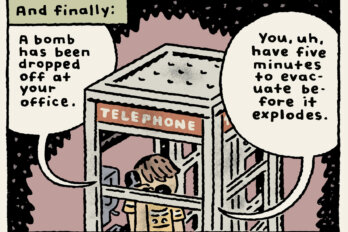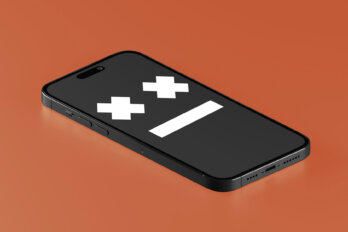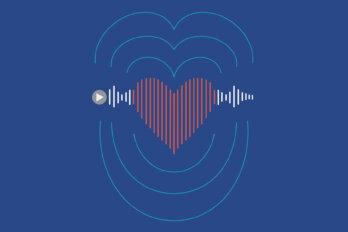Back then, we all wanted to be the Kids in the Hall. How much of this needs to be explained? It was 1994, it was Toronto, it was downtown, and if you stood at the corner of Queen and Spadina and looked in any direction, the Kids were the coolest thing you could see. They had conquered the US. We all wanted to do that. They had upended comedy. We all wanted to do that, too.
So we played shows at the Rivoli restaurant, on the black-box stage in the back room—all the downtown sketch groups, the duos and trios and quartets and quintets, the Bobroom and the Riot Act and Fast & Dirty and Brock & John and Joe’s Convenience and Skippy’s Rangers and Shy One Horse and Pale By Comparison and the Komic-Kazes and the Vacant Lot and Joke Boy—that last one, that was us. We started out as a quartet, all college friends, later whittled to a trio, and on January 23, 1995, we played our first show at the world-famous Rivoli. We called it that—“the world-famous Rivoli”—half in jest and half in awe, because the Rivoli was where the Kids had started out. We played midnight gigs on weekends, during which someone would invariably whisper the rumour that Lorne Michaels was either coming, or was there, or had just left. We jockeyed for spots on CBC’s Comics! and SketchCom and at the Just for Laughs festival. The phrase “the next Kids in the Hall” became a coveted crown, to be passed briefly to, and worn awkwardly by, each hot new group with a sold-out show. Sketch comedy in Toronto in 1994 was like grunge music in Seattle in 1991—and the Rivoli was our Crocodile Café, and the Kids in the Hall were our Nirvana.
A few months before Joke Boy’s first Rivoli show, I started dreaming about the Kids. I dreamt they came to see us and we stank. They came backstage and told us it was okay. For some reason, they were all splashed with talcum powder. Their faces were white, like ghosts.
Nineteen ninety-four was also the final year that the Kids appeared on Canadian television, ending their fabled five-season run on CBC (and, in the States, on CBS and HBO). They signed off with a series finale in which dirt was dumped on their open grave. (Then Paul Bellini danced on it, in a towel.) It was a fitting image, though back then we didn’t know how fitting. The Kids weren’t just burying themselves. They were burying sketch comedy as well.
I read recently that last year the Kids in the Hall were added to Canada’s Walk of Fame in Toronto. This immediately raised the question Who the hell have they been putting on the Walk of Fame before now? If it had been up to me, the Kids would have had their star in the sidewalk before the concrete dried. The Kids were our premium export, a perfectly functioning comedy machine, a Trojan Horse of antic weirdness that we sent trundling south of the border. It arrived disguised as five polite Canadians, but then the Chicken Lady popped out.
Yet even after they achieved success in America, the Kids remained stridently, even self-parodically, Canadian. (Foley, Thompson, McDonald, McKinney, and McCulloch sounds like the starting five for a shinny hockey team, or the partners in a hoser law firm.) They were funny, fearless, and cool—not comedian cool, but rock band cool, street gang cool, with their perfect name (stolen from Sid Caesar, who’d blame bad jokes on the aspiring writers who gathered outside his office to toss him one-liners: “the kids in the hall”) and their iconic theme song, not some wacky here-comes-comedy collection of bloops, bleeps, and horn honks, but a jangly hipster instrumental by Shadowy Men on a Shadowy Planet.
The Kids were a quintet of cross-dressing, genre-trampling pranksters who shied away from sketch clichés: the game show parody, the fake commercial, the spoof talk show. Instead, their sketches were about real people (all five were great actors) in absurd situations, or absurd people in real situations. And in a heartening reversal of the usual comedic calculus, their weirdest bits were also their most popular, from the head-crushing guy (“I crush your head!”), to the sexually insatiable Chicken Lady, to the poignant monologues of gay flâneur Buddy Cole. If you pop in a best-of DVD from any of their five American TV seasons (all released in 2006 in an aptly titled “megaset”), these nearly twenty-year-old sketches still seem fresher and more daring than anything on last weekend’s Saturday Night Live. So why then did the Kids never produce their own comedic offspring? How come the Kids never spawned, well, their own famous kids?
For starters, even the Kids couldn’t be the Kids forever. The individual members were never assimilated into the greater comedy culture in the same way that the SCTV alumni had been. Kevin McDonald never made Uncle Buck; Bruce McCulloch never shrunk the kids, honey; Mark McKinney endured a few short years of being misunderstood and underused on SNL; Scott Thompson waved a dildo in Anne Michaels’ face. And while Dave Foley landed as a lead on NewsRadio, he was cast, improbably, tragically, as the straight man, the comic foil. The Kids made one ill-fated movie, Kids in the Hall: Brain Candy, in 1996, but it bore all the marks of the rumoured tensions that had strained the group for years, coming off like the final album by a band that’s already broken up.
But more than that, when the Kids went down they took sketch comedy with them. I likened them to Nirvana, but that’s not quite right; Nirvana changed rock, but they didn’t end it. Other worthy sketch groups followed the Kids—HBO’s Mr. Show, the NYU-birthed group the State, the Upright Citizens Brigade, which fostered Amy Poehler—but sketch comedy, as a form, is now largely irrelevant. Because in 1994, that year of Queen Street dreams and open graves, something else was happening. The Internet was being born.
Sure, it took us all a few more years to get email addresses and wireless access and, finally, for YouTube to arrive. But once it did, with its blizzard of video ephemera, YouTube made sketch comedy suddenly seem not only obsolete but faintly musty, endearingly quaint, like forming a barbershop quartet. Maybe people still do it, but it’s not where the action is.
This is no disrespect to the sketch groups out there. Trust me, I am your biggest fan. But I have to think that a lot of that energy—energy that was once centred on a black-box theatre in a back room on Queen Street—is now dispersed online in a thousand digital shorts. (If our group had come along five years later, that’s what we would have been doing.) It’s for this same reason that I doubt we’ll ever see another Spy magazine, that other ’80s-born comedic touchstone. Because you can no longer gather thirty people to make one funny thing anymore—they’re all busy making their own funny things, online and alone. The Internet changed music because it gave us new ways to acquire it, but the songs and the bands remained more or less the same. The Internet changed sketch comedy because it exploded it into a million downloadable shards.
This represents a uniquely Canadian impoverishment, because—with apologies to Monty Python—the sketch group is a Canadian contraption. Maybe we didn’t invent it, but we own it. We do it best. The writers’ room, on the other hand, is an American concoction. In the States, TV comedy is typically crafted by a bunch of overworked, wisecracking, sleep-deprived shlumps spitballing ideas in an airless room. That’s SNL. That’s The Daily Show. That’s every sitcom since Sid Caesar corralled Mel Brooks, Woody Allen, and Neil Simon to toil on Your Show of Shows. As Canadians, we’ve never had many writers’ rooms to aspire to—hell, we hardly had any sitcoms. But we could always form sketch comedy troupes. We could get four or five people together in a rec room, pick the perfect name (Funny Ha-Ha? The Wackadoodles? Temporary Insanity?), and try to craft gemlike, hallucinatory, revelatory, hilarious four-minute sketches. We could be the next Kids in the Hall, or aspire to be.
But now who needs a troupe, or a name, or a stage? All you need is a digital camera and a firewire. You need a joke that’s better than the one uploaded two minutes ago. Within twenty-four hours of Christian Bale’s famous on-set audio blow-up (to pick one of a billion examples), there were dozens of funny mash-ups and parodies online, each playing off and one-upping the others. No sooner had Kanye West interrupted Taylor Swift at the MTV Video Music Awards than someone had set up immaletyoufinish.tumblr.com, a repository of Kanye West “I’mma let you finish” gags. The Balloon Boy was still rocketing through the Colorado sky, and people were already tweeting jokes about it. (Never mind what happened when the balloon turned out to be empty. Still ricocheting across Twitter: “Yo Balloon Boy, I’mma let you finish, but Anne Frank had the best attic hideout spot of all time.”)
Don’t get me wrong: this is not bad for comedy, but it is bad for sketch comedy. Why start a comedy troupe when the whole world is now one big comedy troupe? The whole world is spitballing ideas. The whole world is a writers’ room now.
It is at this point in the story I bring you the happy news that the Kids in the Hall are reuniting. The Kids are, as we speak, putting the final touches on a new eight-part CBC series, Death Comes to Town, which will premiere in January. With typical macabre glee, the show will chronicle a killing spree in a rural town, followed by a sensational trial. The series opens, reportedly, with Death (played by McKinney) arriving on a Greyhound bus.
So when we last left the Kids, they were being buried in a grave of their own making. Now they’re returning, with Death, on a bus.
Greyhound buses. Rural towns. Killing sprees. It all echoes Robert Pickton and his nightmare pig farm, or that insane story about the guy getting his head hacked off and body parts eaten on the bus out of Edmonton, or any number of similar calamitous absurdities that have happened in the post-KITH world. Dare we say: the Kids in the Hall, lurching fresh from the grave, are returning, reborn, just in time.
As for the rest of us, all those Queen Street sketch rats, well, the Kids had shown us what was possible, but also what was impossible: that is, surpassing the Kids. Of all the “next Kids in the Hall,” none of us were. Over the years, I saw a number of great comedians take the stage at the world-famous Rivoli, from Seán Cullen to Shaun Majumder to Janeane Garafalo to Will Ferrell, but it remains world famous for the same reason it was fifteen years ago: as the birthplace of the Kids in the Hall.
As for Joke Boy, we performed for three more years, then split up. My partner David Haydn-Jones moved to LA to act, and, later, I moved to New York to write. Dave’s been a working actor ever since, and a few years ago he starred in the CBC sitcom Rumours. Another of our original members, Colin Ferguson, now appears on Eureka, a show on Syfy. Seán Cullen left Corky and the Juice Pigs and became Seán Cullen. Jason Jones, who was in the sketch group the Bobroom, and who occasionally filled in roles for us, has since joined his wife, Samantha Bee (ex of the sketch group the Atomic Fireballs) as a correspondent on The Daily Show. Jennifer Irwin, of the short-lived troupe Team Unitard and, later, Second City, now stars on HBO’s Eastbound & Down. Two exiles from Skippy’s Rangers, Bob Martin and Lisa Lambert, turned a bachelor party skit into a hit Broadway show, The Drowsy Chaperone, which later won a Tony. Last summer, when I brought my girlfriend to Toronto, I gave her a downtown tour with one stop: the musty black-box stage at the Rivoli.
The previous spring, I was back in Toronto for the National Magazine Awards, and I was staying at the Cambridge Suites hotel. Arriving late on my first night, I did what most reasonable people would do: I headed to the hotel bar for a drink. A couple of guys sat at a nearby table in suits and loosened ties; I reflexively took them for the kind of clueless business-class dunces that the Kids made a career of lampooning. As it happened, the Kids in the Hall themselves were in town that night, playing a show at Massey Hall as part of a reunion tour. And they were staying at the Cambridge Suites as well.
Then a funny thing happened: a man walked into a bar.
It was Scott Thompson, in search of a post-show drink.
He sat at the bar and ordered. We had worked together a couple of times, years back, so I said hello and we chatted briefly. He was gracious and funny. He had the ease and glow of someone who’s just finished doing the exact thing in the world that he’s meant to be doing.
One of the suits at the nearby table stood to leave, then paused for a wobbly moment. He was obviously a few drinks in. Everyone knew he was going to say something to Thompson. For a moment, I worried he might make some anti-gay swipe. He approached slowly and said, “I just have to tell you. You guys were fucking hilarious.”
Maybe it’s not needed quite yet, but one day that will serve as a perfect epitaph.





